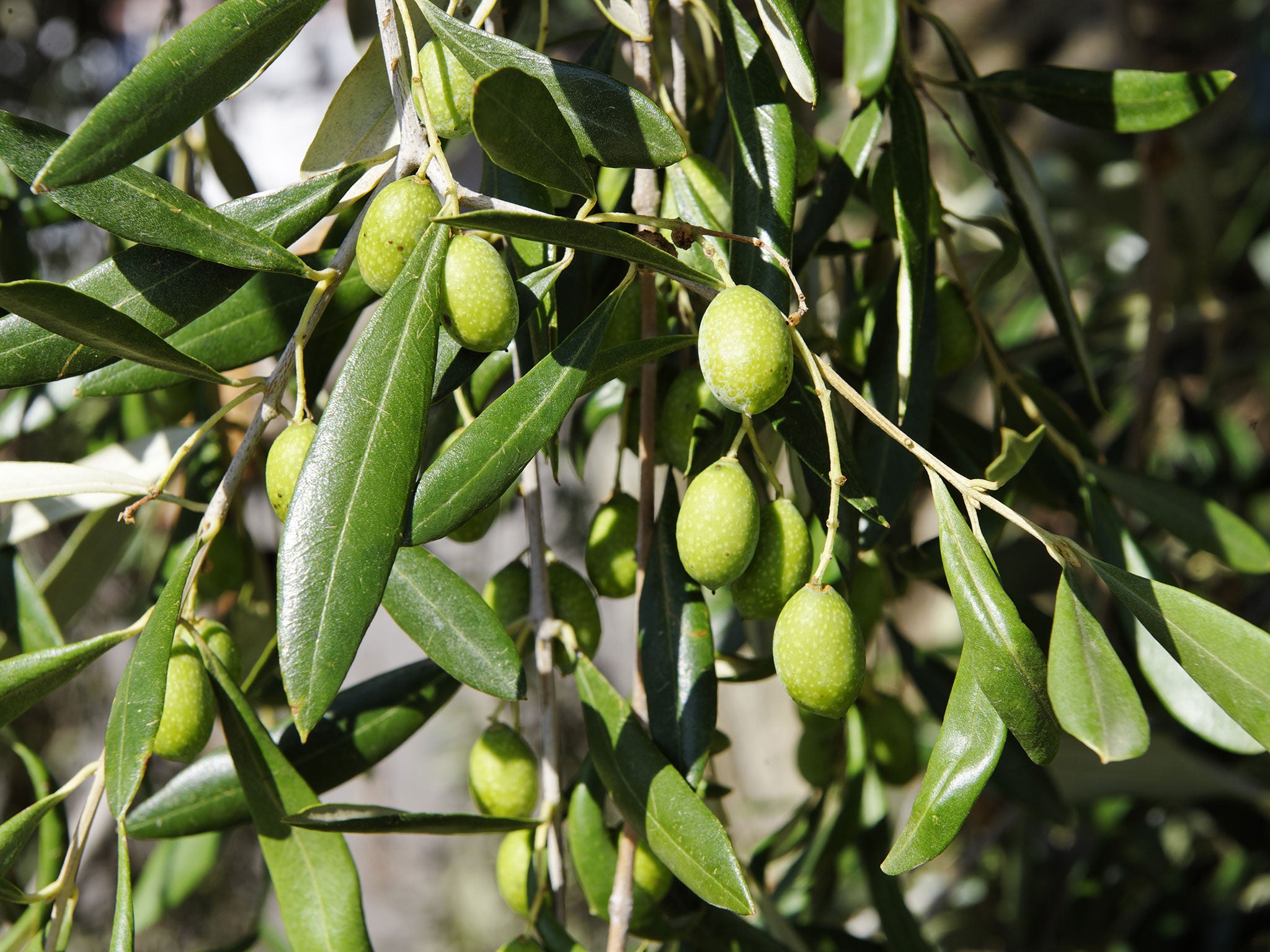Alien bacteria threatens southern Italy’s most prized olive groves
The cost so far of the outbreak, in terms of lost trees alone, is £200m, but this figure is set to rise sharply

Observant holidaymakers driving through Puglia’s hazy olive groves this summer might notice the unusually desiccated and unhealthy state of the trees.
This is because the southern region – Italy’s most important olive oil-producing area – is under attack. The culprit, though, is not one of the usual suspects such as organised crime, corruption or bad weather, but a hostile alien species. Xylella fastidiosa, a plant bacteria first identified in the Americas, is responsible for the crisis in the olive groves. In the Salento, the southern half of the region (which forms the heel on the “boot” of Italy), around 800,000 trees, or 10 per cent, are now infected.
Many of Puglia’s most ancient trees, some 500 years old, are succumbing to the infection, which sees the plants dry out and become incapable of fruiting. Often only withered stumps are left.
The cost so far of the outbreak, in terms of lost trees alone, is €250m (£200m). But this figure is set to rise sharply. In desperation, the region has called in experts from the US to help it contain the contagion that began last year and is now spreading alarmingly and threatening to devastate the local economy.
Puglia produces about 11 million tonnes of olives a year, more than a third of the national crop. The region’s oils are among Italy’s most prized, ranging from sweet, delicate and golden products to the rich, green and robust oils that chefs prefer for roasting.
Angelo Corsetti, a spokesman for Coldiretti, the national agricultural organisation, said that with so much at stake, olive growers were preparing drastic measures to contain the epidemic, particularly in the worst-affected area, from Gallipoli down to Leuca.
“The disease is continuing to spread thanks to the summer temperatures and we have to take the right measures. There will be a genuine ‘cordon sanitaire’ of 8,000 hectares where it will be obligatory to destroy the trees,” he said.
But an emergency decree to provide €3.5m of funds and force growers and local officials to take the urgent measures will not arrive until 27 August. Things take time in the Italian south, particularly in the middle of the long summer holiday. Unfortunately, “Xylella does not go on holiday,” as Mr Corsetti’s colleague, Gianni Cantele, noted this week.
Anna Maria D’Onghia, the head of plant protection at the Mediterranean Agronomic Institute of Bari, said that while Xylella fastidiosa appears to be the principal cause of the problem, it’s likely that as-yet unidentified fungal pathogens might be contributing to the trees’ malaise.
She told the Corriere del Mezzorgiorno newspaper that the outbreak in the olive groves of the Salento was the first ever seen in Europe. She noted, too, that the type of bacteria identified in Puglia trees was slightly different to the organism that had attacked legumes in Brazil and vines in California. Some insect species are probably responsible for spreading the infection from tree to tree.
The researchers from Bari have been helped in their efforts to study and contain the disease by experts from Berkeley University in California.
It is not yet clear how many species might be vulnerable to Xylella fastidiosa because many species would be encountering the bacterium for the first time, according to the European Food Safety Authority. As a result, the European and Mediterranean Plant Protection Organisation, has warned that the disease is a “very serious threat” to European agriculture.
Raffaele Baldassarre, a Puglia-born MEP, has asked the European Commission what finances will be available to aid affected olive growers.
Join our commenting forum
Join thought-provoking conversations, follow other Independent readers and see their replies
Comments